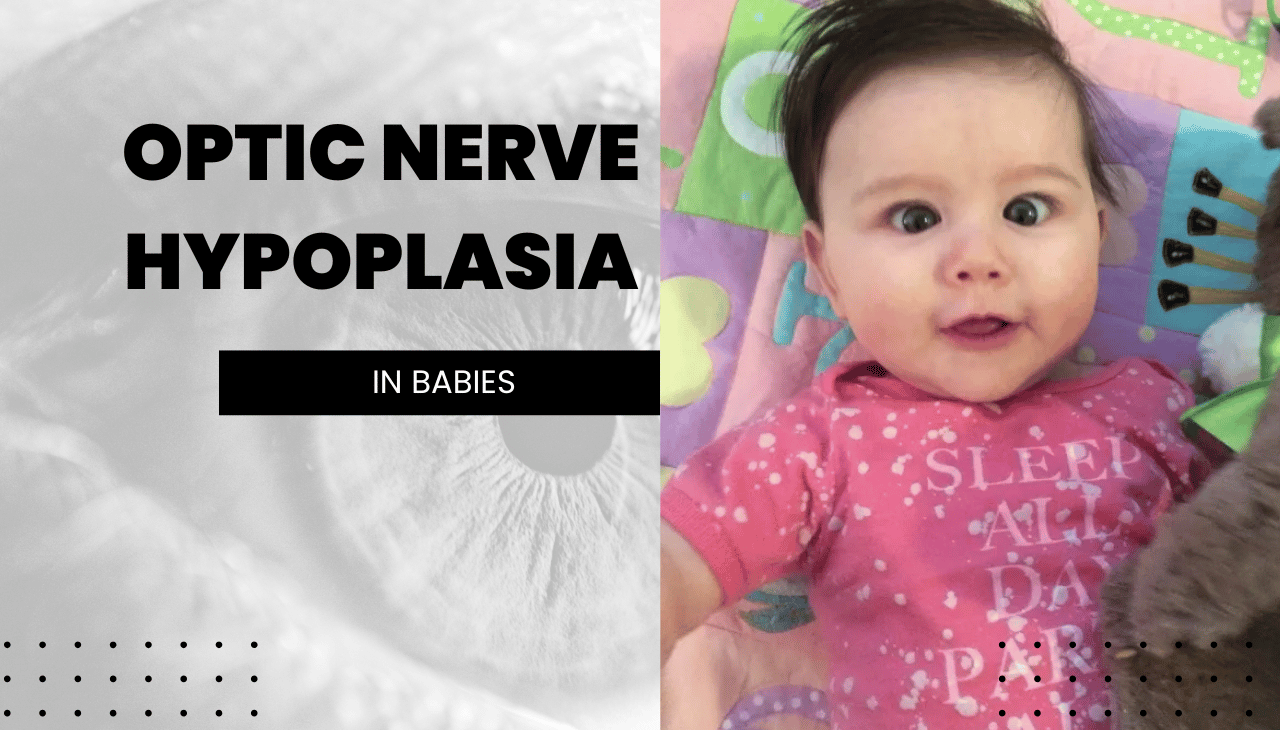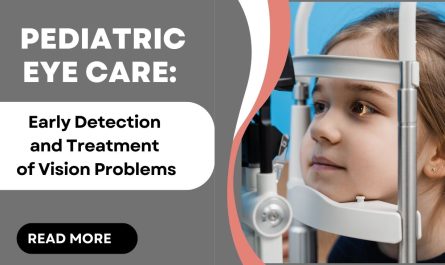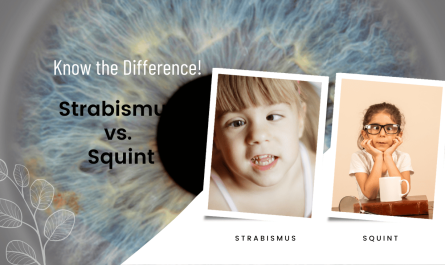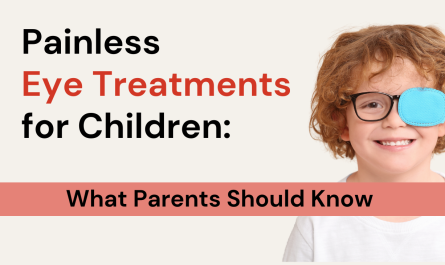Optic Nerve Hypoplasia (ONH) is one of the most common causes of childhood vision impairment. It occurs when the optic nerve — which transmits visual information from the eye to the brain — doesn’t develop properly during pregnancy.
As a parent, noticing vision-related issues in your baby can be worrying. ONH is a condition that needs early diagnosis and consistent care to manage its impact on vision and development.
This blog covers what ONH is, how it’s diagnosed, treatment options, long-term outcomes, and how you can support your child through the journey.
What Is Optic Nerve Hypoplasia?
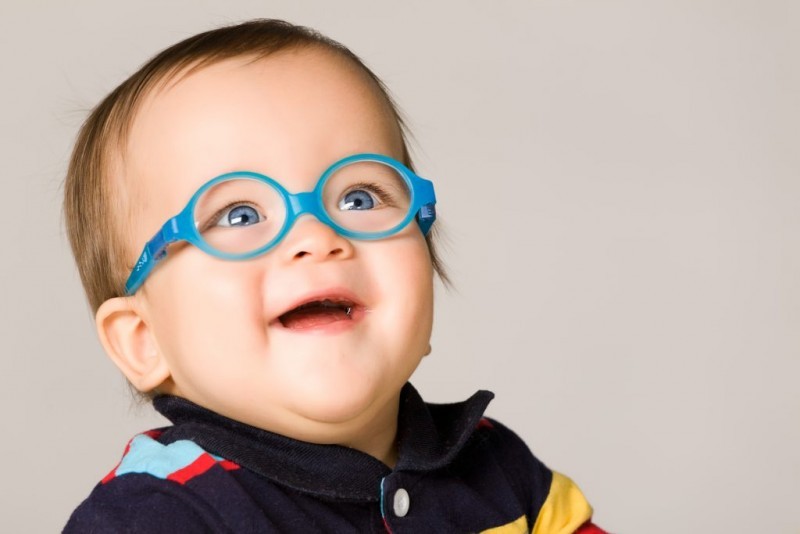
Optic Nerve Hypoplasia is a congenital condition, meaning it is present at birth. In babies with ONH, the optic nerve contains fewer nerve fibers than normal. As a result, the nerve may not be able to carry full visual signals to the brain.
ONH can affect one or both eyes. If only one eye is affected, the other eye may compensate. If both eyes are involved, the child may have significant visual impairment.
What Causes ONH?
The exact cause of ONH is still unknown, but researchers believe several factors may contribute:
- Abnormal development during pregnancy
- Maternal diabetes
- Use of certain medications during pregnancy
- Young maternal age
- Hormonal imbalances
ONH is not typically inherited and is not caused by anything the parent did during pregnancy.
Symptoms and Signs in Babies
Early signs of ONH can be subtle, especially in newborns. Here’s what parents might notice:
- Lack of eye contact
- Delayed visual tracking
- Nystagmus (involuntary eye movements)
- Eyes that appear to “wander” or don’t align
- Sensitivity to light
As your baby grows, delayed motor skills may also become apparent, especially if vision is significantly reduced.
How Is ONH Diagnosed?
Diagnosing ONH usually involves a combination of:
1. Eye Examination
An ophthalmologist will examine the back of the eye (the retina and optic nerve) to assess the size and appearance of the optic nerve.
2. Visual Behavior Observation
Doctors observe how the baby responds to light and tracks objects. A lack of response may suggest visual impairment.
3. MRI of the Brain
Many children with ONH undergo a brain MRI. This helps check for associated brain abnormalities, including septo-optic dysplasia.
4. Hormone Tests
ONH may be associated with pituitary gland issues, which affect hormone production. Blood tests help monitor hormone levels.
Is ONH Associated with Other Conditions?
Yes. Some children with ONH also have septo-optic dysplasia, a condition involving:
- Optic nerve underdevelopment
- Pituitary hormone abnormalities
- Brain structure differences (such as absence of the septum pellucidum)
Because of these associations, it’s crucial to monitor a child’s overall growth, hormone levels, and brain development alongside eye health.
Can ONH Be Treated?

There is no way to repair or reverse the underdeveloped optic nerve. But treatment can focus on:
1. Visual Rehabilitation
Vision therapy and early stimulation help maximize the use of remaining vision.
2. Hormonal Management
If pituitary dysfunction is present, hormone replacement therapy may be required.
3. Developmental Support
Children with ONH may benefit from:
- Early intervention programs
- Occupational therapy
- Physical therapy
- Special education services
Early and consistent care can greatly improve quality of life.
What Is the Outlook?
Every child with ONH is different. Some have mild visual issues; others may be legally blind. With proper support and treatment, many children can attend school, play, and lead fulfilling lives.
Parental involvement and early diagnosis are key. Creating a supportive home and getting professional help can make a significant difference.
When Should You See a Specialist?
If your baby avoids eye contact, doesn’t track objects, or shows abnormal eye movements, consult a pediatric ophthalmologist. Don’t wait for regular checkups — early action is critical for vision and developmental outcomes.
Consultation at Laxmi Eye Institute
Laxmi Eye Hospital is one of the largest and most trusted eye care chains in Mumbai, with over 30 years of excellence.
Our team of experienced eye specialists is known for providing transparent and accurate treatment. From diagnosis to follow-up care, we ensure that every child receives the right support at every step.
We specialize in services like:
- Specs Removal / LASIK (Bladeless LASIK, ICL and IPCL, Contoura Vision LASIK)
- Cataract
- Glaucoma
- Diabetic Eye
- Cornea Clinic (including Keratoconus & Eye Donation)
- Retina Treatment
- Pediatric Ophthalmology
We offer comprehensive eye care under one roof in the following locations:
Laxmi Eye Clinic (Dombivli)
1st Floor, SS Business Park, Gharda Circle, Dombivli East, Mumbai, Maharashtra 421201
Laxmi Eye Clinic (Kharghar)
Office 108-110, 1st Floor, Anant CHS Plot 31, Sector 04, Kharghar, Navi Mumbai, Maharashtra 410210
Laxmi Eye Hospital & Institute (Panvel)
Mulla Hamid Rd, Old Panvel, Navi Mumbai, Maharashtra 410206
Laxmi Eye Institute (Kamothe)
Shop No 26/27, Near ICICI Bank, Pratik Gardens, Sector 34, Kamothe, Navi Mumbai, Maharashtra 410209
To book a consultation, visit our nearest clinic or call our helpline.
FAQs
1. Is optic nerve hypoplasia the same as blindness?
No. ONH may cause vision loss, but not all children are completely blind. Many retain partial vision.
2. Can ONH be detected during pregnancy?
Currently, ONH cannot be diagnosed during routine prenatal scans. It is usually detected after birth.
3. Will my child’s vision improve over time?
ONH is non-progressive, which means it doesn’t worsen. Some children show improved use of their limited vision with therapy.
4. Is ONH painful or dangerous?
ONH isn’t painful. However, associated hormonal imbalances can be dangerous if not treated.
5. Can my child attend regular school?
Yes, with proper support. Some children may need visual aids or special education resources.
Final Thoughts
Optic Nerve Hypoplasia can be a complex condition, but early diagnosis and the right support system can shape a child’s future in a positive way.
If you suspect any signs of visual delay in your baby, don’t ignore them. Consult a pediatric eye specialist at the earliest. With the right care from expert ophthalmologists and dedicated developmental support, your child can lead a happy and healthy life.
Laxmi Eye Institute is here to walk with you — every step of the way.

